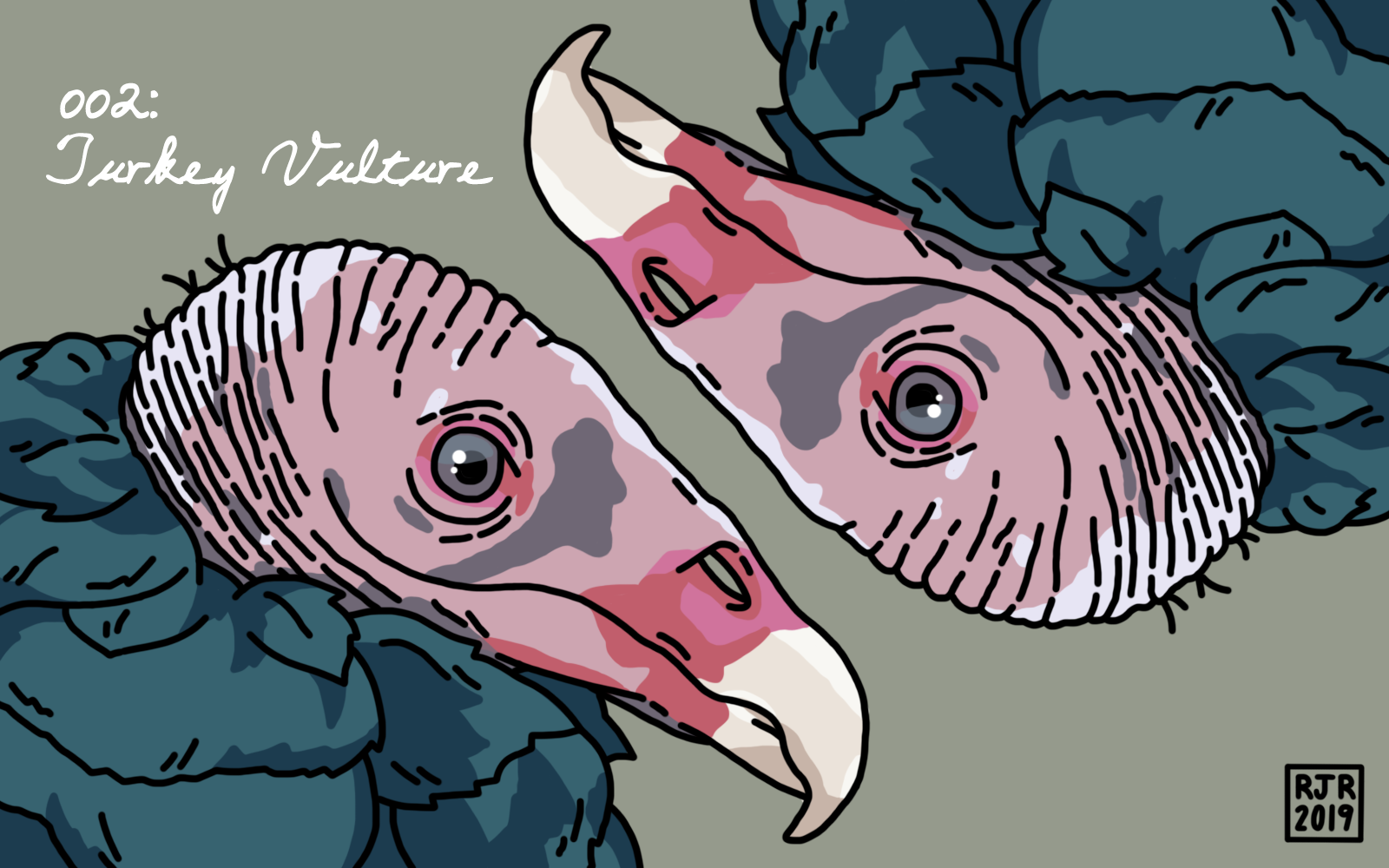Take the turkey vulture.
You expect, you do, to see them soaring above the gravel roads of Indiana, crisscrossing farmland, eyes trained down, following the scent of death, glossy-black clean-up crew with their blood red pin-prick heads, but here, on Long Island, in this subdivision, they seem out of place.
Picture it: post-World War II bungalow-style houses, plots and plots of neat hedges and kempt lawns and luxury cars, everything right where it should be. And yet, driving back from the nail place—because When in Long Island—you see a petite red squirrel that’s been car-squashed, dirt-pink innards separated out along its ruddy coat, and there, looming over it—feeding and not shy about its work—is a hulking turkey vulture.
It’s momentarily startled by your sputtering engine, the power windows rolling down so you can get a better look, poise your phone’s camera. The vulture takes an awkward hop back, making sure you’re no threat, and then it’s back to the squirrel, hollowing it out and leaving only—you go back and check hours later—an elfin pelt (that you earnestly debate taking with you).
Still in your car, pulled against the curb, watching the vulture feed, you repeat the facts you know:
- They have a six-foot wingspan.
- They don’t make nests of any kind, but lay eggs right on the ground.
- They can’t sweat or pant, so they piss themselves, all over their legs and talons, to avoid overheating.
- They can smell a rotting carcass from miles away, from a thousand feet in the sky.
The clouds are syrup here, all smoke and haze. At night, you can’t see any stars, just cobalt-blue light pollution bleeding over from the City, inescapable, all of it. So it’s shocking to see this bird here, reminding us of the natural order, that there is life yet outside of this unyielding municipality, a community that tries to remove itself so forcibly from the wild world.
Across the street, a neighbor comes out and makes a loud phone call to animal control. They’re afraid, can’t fathom this monster so close to their house and family. They wave their arms wildly, try to shoo the bird away. They don’t know what to make of this carnage.
Later, the turkey vulture will desert this place, when it’s ready, leaving behind only the pelt and a stain of berry-red on the black asphalt.
No, we’ll just go on pretending it doesn’t belong here at all.
—
Robert James Russell is the author of the novellas Mesilla (Dock Street Press) and Sea of Trees (Winter Goose Publishing), and the chapbook Don’t Ask Me to Spell It Out (WhiskeyPaper Press). He is a founding editor of the literary journals Midwestern Gothic and CHEAP POP. You can find his illustrations and writing at robertjamesrussell.com, or on Twitter/Instagram at @robhollywood.
Artwork by: Robert James Russell
